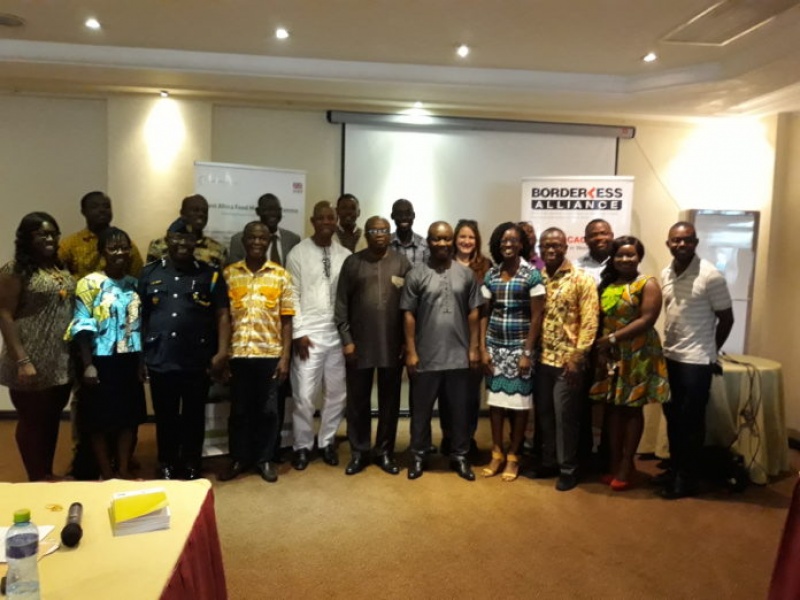
It is estimated by the West Africa Food Market (WAFM) that about 10 million people in the West Africa region are currently going through food crises.
Seven million of this number is estimated to be coming from Nigeria especially in the North-Eastern part where Boko Haram activities is suggested to be a major contributing factor for food crises.
The crises, according to the Policy Facility Manager of WAFM, Mr. Noel Yao Kossonou, is caused by smuggling of foods across borders in the region and the general lack of security in the region which prevents people from farming and trading.
Mr. Kossonou said the lack of knowledge and compliance of trade procedures among trade stake holders has also contributed heightened food insecurity within some countries in West Africa.
A validation workshop on cross-border trade guide on imports and exports has therefore been held in view of this, to summarize the import-export procedures and provisions on processed cereals and cassava.
The workshop was also aimed at collecting professional inputs from stakeholders for the finalization of a Cross-Border Trade Guide handbook based on ECOWAS protocol in the region.
The West African Food Programme (WAFM) founded by UKAID and implemented by the Palladium Group begun operations in 2013 with the aim of supporting businesses to launch innovative ventures that increase production, processing and marketing of staple foods particularly maize, millet, sorghum and cassava through cross-border trade.
The project provides grant and funding to agribusinesses that have the potential to grow and create impact through scalable models and strong holder supplier networks across national and regional markets.
Currently, the WAFM programme has exceeded its direct target of supporting 130,000 smallholder farmers to about 330,000.
Mr. Kossonou said: “Today, we decided to validate a handbook to see properly weather what the project that we took up as an assignment has been properly done. We also want to make sure that we respond to what ECOWAS, UKAID and the British government wanted – that cross-border trade becomes something that is a reality and attain food security in the region to ensure that people really have good food and good nutrition.”
Explaining further the need for the handbook, Mr. Kossonou revealed that: “The major problem in the region is that ECOWAS trade protocols that regulate the moving of people and services and trade are not known to the ordinary ECOWAS citizen. Therefore we see it as an opportunity for us to make these protocols known publicly and have a wider dissemination of this protocols to everyone including policymakers. This is because you can go to our ministries who are really doing trade but they don’t know some of these. So, this is an abridged version that can be easily read and people can know this information and take advantage of it.”
See Also: Public debt to reach 72.4% of GDP – Moody’s
Currently, WAFM has supported 12 businesses based in Nigeria, Niger, Burkina Faso and Ghana, who provide fortified food to these regions facing food crisis. Mr. Kossonou said the processed food are fortified with vitamins for healthy growth and therefore “food like gari, sorghum and millet can give all the nutrients needed for a balanced diet.”
He added that WAFM is discouraging aid from European countries and the American. He said: “We are trying to discourage aid therefore we are producing food here. So instead of getting the money from outside, the food is produced and bought and sold internally here which the West African region has the capacity to do. This also falls in line with government’s agenda of ‘Ghana Beyond Aid’.”
Source : thebftonline.com

































